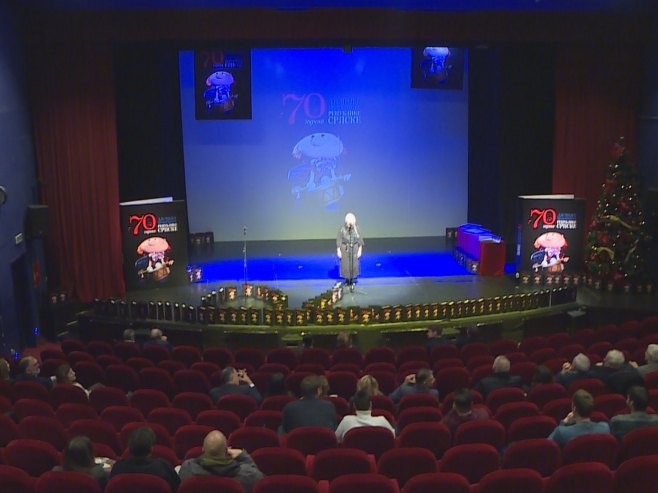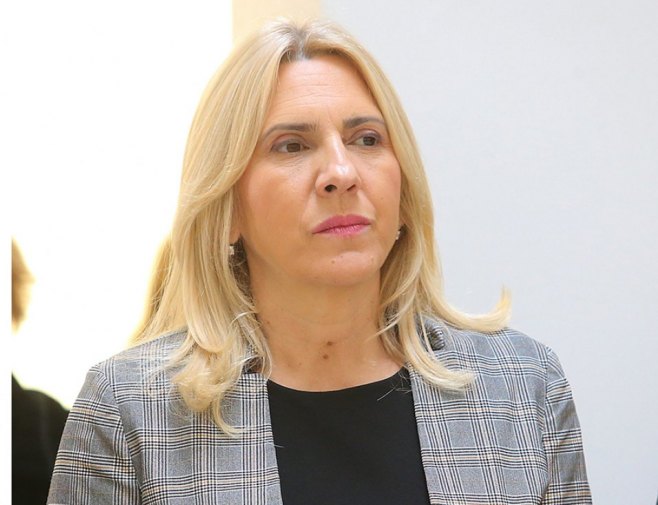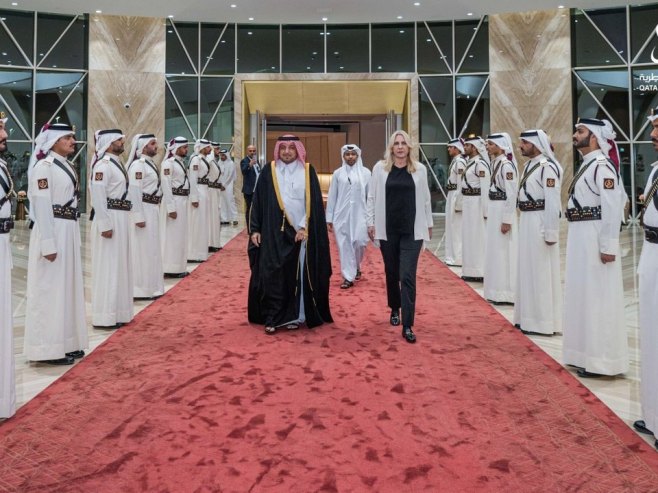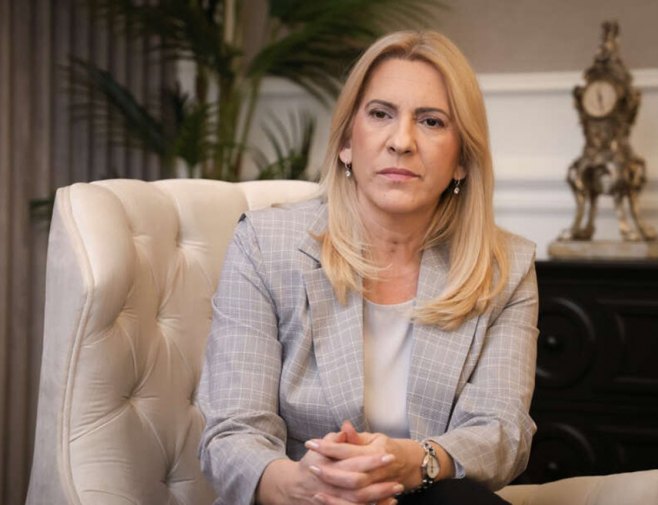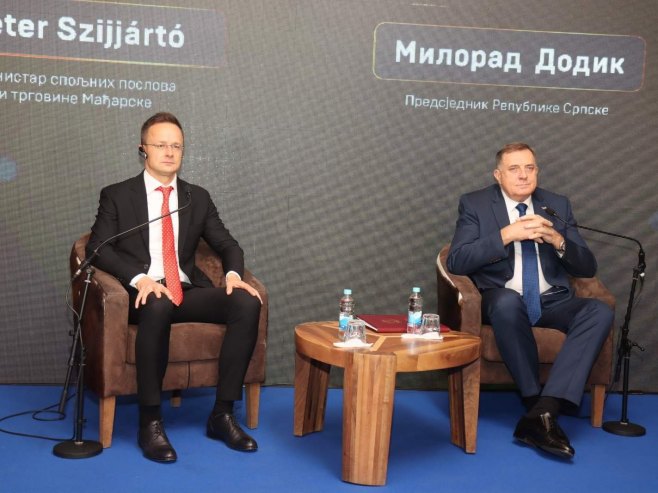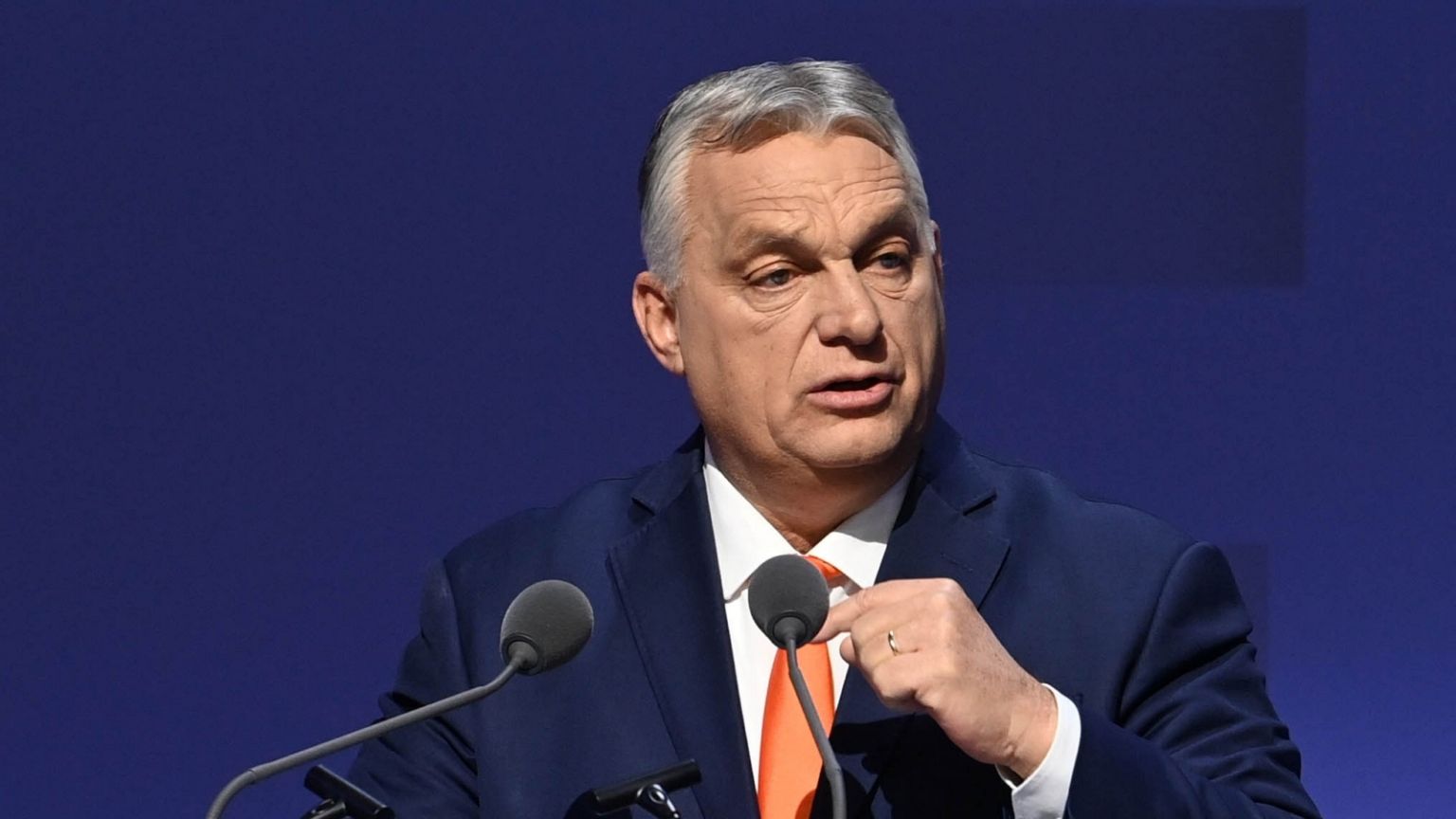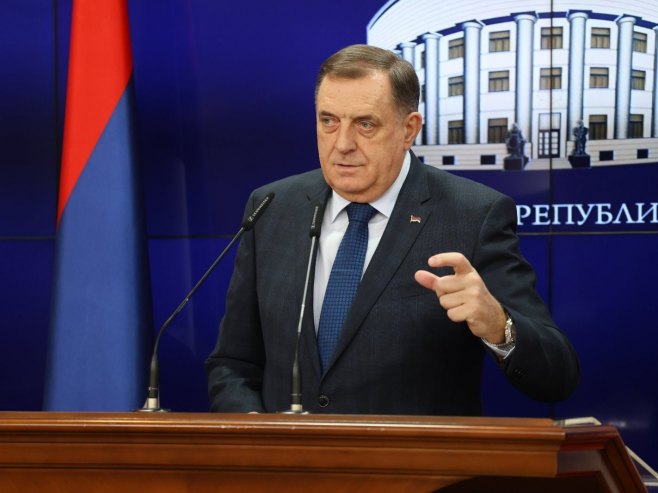Serb member and Chairwoman of the Presidency of BiH Željka Cvijanović stated that during her meetings in the United States, she spoke about things that were new to her counterparts, as they had previously been told that Republika Srpska was to blame for everything, but now, in both the United States and Europe, there is a desire to learn more.
Cvijanović emphasized that the foreign policy priorities of the current U.S. administration focus on good cooperation with everyone, avoiding armed conflicts, building inter-country relations through economic ties, and moving away from nation-building and state-imposing interventions.
“I believe the time has come for everyone to tell their own story. The things I presented at those meetings were new to them. When I explained what the so-called High Representative is doing, they asked whether that is really still happening today,” Cvijanović said.
When she confirmed that it was indeed happening, she noted that even those who used to criticize them were not pleased with it.
“When you explain that this is a countermeasure to that activity—a form of resistance to this unlawful, non-Dayton-imposed obligation and occurrence—they respond by asking, ‘is this really possible?’” Cvijanović explained to Newsmax Balkans.
She stated that the purpose of democracy is openness and the ability to speak freely, and that she recognizes the new U.S. administration’s commitment to defending democracy.
She also highlighted that at the meeting, and in a statement made by Deputy U.S. Secretary of State Christopher Landau in Dayton, it was made clear that America no longer wants to act as a global policeman, nor does it want to offer, impose, or enforce solutions.
It was emphasized that it is the obligation of domestic institutions, as in any country, to create their own environment and solutions, while the U.S. will encourage serious dialogue.
“To me, those messages are clear,” Cvijanović said, adding that the U.S. does not support a culture of overriding the will of the people, which they clearly expressed.
She pointed out that dialogue is possible with anyone who wants it, who feels responsible for the processes and believes they are capable of leading such dialogue.
“In Republika Srpska, every single institution and their representatives want dialogue, and that is important to me. I would consider myself a very limited person if I didn’t want to talk,” said Cvijanović, noting that dialogue is most necessary when there is disagreement—so that misunderstanding might lead to understanding.
“Spare me that narrative,” Cvijanović added, referring to attempts by the other side to choose whom they want to talk to.
She assessed that such personalization has led to absurd situations where people refuse to talk with SNSD, the largest political party in Republika Srpska, which will remain the largest.
She said she constantly sends signals to engage in dialogue, recalling her appeals in the Presidency not to be outvoted, since that forces her to use mechanisms to block what she sees as harmful.
“Isn’t it more logical not to outvote me? Let’s talk. If you insist on outvoting me, I have to protect myself. Isn’t that a clear enough signal?” Cvijanović said.
She stressed that her goal is for no one to take anything away from anyone, and for everyone to understand that we are equals, and that BiH, with all its constitutional structures, should make decisions independently.
“My goal is for BiH to be truly sovereign, not falsely so. It is not sovereign while there is a foreigner who can manipulate it and pretends to be above parliament, which is unacceptable,” said Cvijanović.
She reminded that the National Assembly of Republika Srpska adopted laws as a countermeasure to what is being imposed, since an unelected foreigner has no right to change the Election Law, suspend the will of political parties, punish them, and act as they please.
“One cannot claim that he or any other foreign individual is protecting the country’s sovereignty, while the institutions—those who should be acting sovereign—are not,” Cvijanović stressed.
She emphasized the need to deal with root causes, not just consequences, in order to better structure future solutions.
“If my colleague comes and says that the most important tool for preserving the state is an unelected foreigner, I say that’s pathetic politics. Do you know what is the greatest guarantee of state preservation? That all three constituent peoples are equal, that the Constitution and laws are respected, and that we can communicate and create better solutions. A country that must be protected by someone from the outside is a miserable state,” Cvijanović concluded.
Source: RTRS
